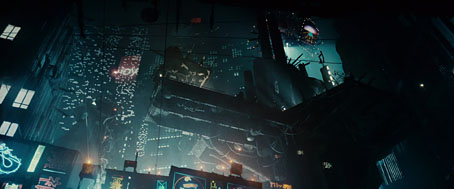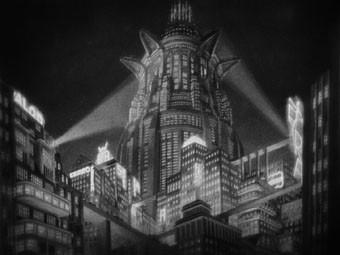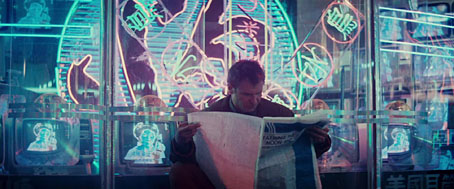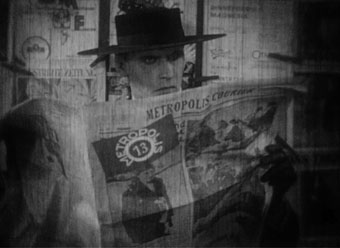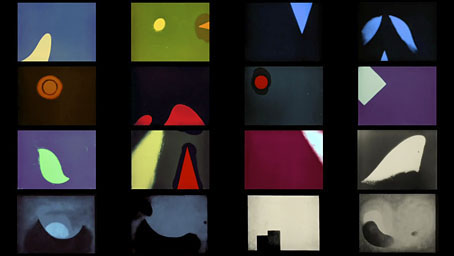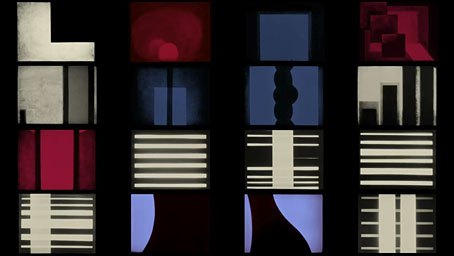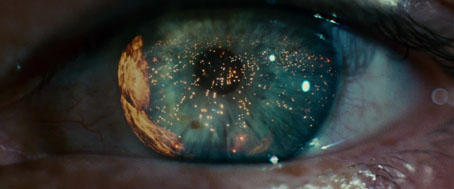
Given the chronology this should really be “Metropolis vs. Blade Runner” but most people are more familiar with Ridley Scott than Fritz Lang so I’ve let Blade Runner determine the order of the shots.
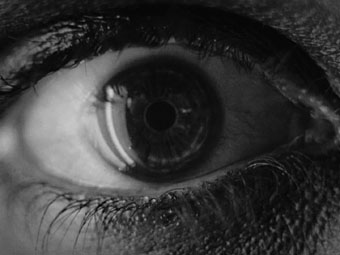
These shot comparisons aren’t exactly news but they’ve become more evident since rewatching the restored print of Metropolis. Among other things, the rediscovered footage yielded a scene with a character reading a newspaper that’s a match for Harrison Ford’s first appearance. The similarities extend, of course, to the thematic: futuristic megacities, flying vehicles, the creation of artificial human beings. Both films also end with a struggle to the death on the roof of a building. The cinematographer for Blade Runner was Jordan Cronenweth; Metropolis was the work of Karl Freund, Günther Rittau and Walter Ruttmann.
